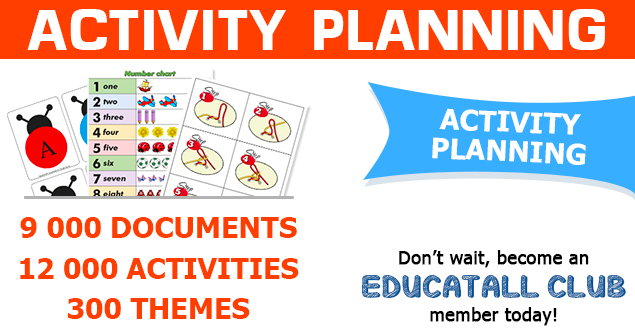
The 5 faux pas of discipline
I often write about positive discipline. I like to share tricks, interventions, and attitudes that may be helpful when working with little ones, tools you can add to your early childhood educator toolbox to become more efficient and experience a certain sense of competency. Today, we will explore discipline from a different angle and discuss the worst faux pas. I have experimented with countless interventions over the years and have therefore encountered many faux pas. Here, I would like to highlight the five worst ones, the ones you must avoid at all costs.
Unfortunately, these big and small “oops” are sure to lead you straight to discipline-related problems. Nonetheless, you may be tempted by one or the other of these faux pas at some point. Believe me, it’s never too late to shift your path. Being aware of these difficulties is the first step towards improving the situation.
Inconsistency
What exactly is inconsistency? It’s when you intervene differently every time or when you sometimes choose to ignore a certain behaviour, but intervene at other times. Inconsistent interventions increase the frequency of certain behaviours and foster insecurity in the children you care for, since they never know what to expect. The more inconsistent you are, the more children will test your limits.
Having unrealistic expectations
It is very important that you adapt to the ages of the children in your group. A two-year-old is unable to remain seated for 30 minutes to participate in an activity and will be unable to follow instructions without requiring several repetitions. Having unrealistic expectations may cause dissatisfaction and frustration on your end. Indirectly, you will send children the message that you are never satisfied with their behaviour. This can negatively affect their self-esteem. As a result, you may see the frequency of negative behaviours increase.
Using timeouts for all types of behaviour
Timeouts should be used for a very limited number of behaviours, such as behaviours that must immediately be stopped (physical or verbal violence for example). For all other behaviours, timeouts should be avoided. There are several different interventions that you may choose from to avoid using timeouts. If timeouts are used too often, they can lead to a sense of misunderstanding in children and therefore become less effective. The use of timeouts doesn’t teach children about the actual consequences of their behaviour. Aim to find consequences linked to their behaviour and reserve timeouts for certain targeted behaviours.
Having too many rules
Having too many rules often leads to inconsistent interventions. Trying to apply all your rules can make you feel lost at times. Imagine how children feel when they have 20 or more rules to remember and follow daily… Trying to respect them all can be difficult for young children. It is best to have less rules, but maintain them and see to it that they are respected.
Non-stop interventions
Do you sometimes feel as if you are intervening non-stop? If yes, it is quite possible that you are intervening too much. When you intervene too often, children become accustomed to hearing your voice and, unfortunately, your interventions lose their impact. As much as possible, practice intentional ignorance and intervene positively as often as you can. As a result, you will most likely intervene negatively a lot less. Learn to target the most important behaviours and focus on them. You will be less tired and begin to feel as if you are intervening less often…and more efficiently.
Maude Dubé, Specialized educator

 Home
Home Theme activities
Theme activities
 Babies and toddlers
Babies and toddlers
 Arts and crafts
Arts and crafts
 Science
Science
 Creative recipes
Creative recipes
 Tips and tricks
Tips and tricks
 Special needs
Special needs
 Extra activities
Extra activities
 Educ-TV
Educ-TV
 Newsletter
Newsletter  Online store
Online store Educatall club
Educatall club

